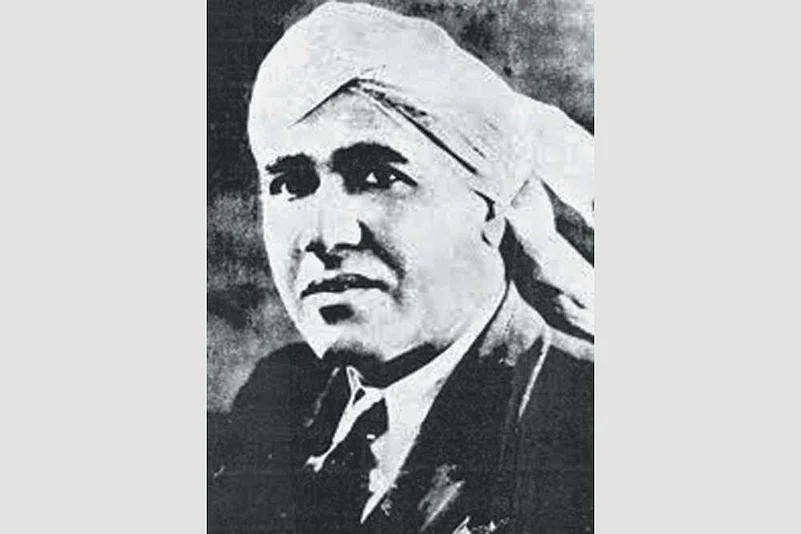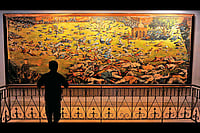The ghastly massacre of innocent lives at Jallianwala Bagh impaired the spirit of Punjab forever. But the carnage also produced a new generation of revolutionaries who dared to offer a fearless response to the military violence of the colonial state. Two such daring men, Bhagat Singh and Udham Singh, became legends. Indeed, shaped as they were by the horrors of imperial violence, they chose a variant of nationalism—an anti-colonial protest that justified violence as a means of political liberation.
Much have been written, and taught, about the non-violent narrative of Indian nationalism, with Gandhi its supreme leader. The extraordinary lives of men like Udham Singh, who challenged that through revolutionary fervour, remain comparatively neglected. Mainstream narrative casts revolutionaries as impetuous and immature, lacking the sagacity and restraint of the Mahatma and his lieutenants. It is time that was changed, their methods studied.
As she unravels the tragic narrative of Udham Singh, Anita Anand opens a forgotten chapter of Indian revolutionary nationalism. Udham’s life spans the historically neglected post-Jallianwala decades. We get a rich account of Udham’s turbulent journey, from his early life as a backward caste orphan to a raging revolutionary struggling to achieve his goal.
Anand reveals how Udham was single-mindedly devoted in his resolve to avenge the British atrocity in Punjab. The anger simmering for twenty years within him triggered a profound sense of retribution. ‘The Patient Assassin’, as the title of Anand’s book describes him, accomplished his life’s mission in the end, and that, too, at the beginning of the Second World War, at a time of heightened security. Udham Singh assassinated a senior British civil servant at the very heart of the imperial capital, at a public meeting in Westminster Hall on March 13, 1940. The target: the former lieutenant governor of Punjab, Sir Michael O’ Dwyer—the man who had backed Dyer, the butcher of Jallianwala Bagh, introduced a reign of terror and imposed martial rule in the province. Udham was inspired by the idea of ‘Inquilab’—revolution—that justified bombings and targeted assassinations as the principal strategy to dismantle the Raj.
Anand places Udham Singh in the larger history of Punjab from the early 20th century onwards. We also discover how he was part of the global scene—his eager peregrinations covered Mesopotamia, Egypt, Africa, Russia, Europe, North America and the UK. He was everywhere. Apart from his turban, he wore many hats, multiple disguises and identities. These exhausting, circuitous journeys only strengthened his sense of purpose, further steeled by a spirit of self-sacrifice. Punjab was a hotbed of revolutionary fervour right from the time Amritsar-born Madan Lal Dhingra killed Sir Curzon Wyllie in 1909 in London. The following Ghadar movement and its inspiring leaders like Har Dyal, Sohan Singh Bhakna and Kartar Singh Sarabha emboldened Singh. Above all, as Anand tells us, Udham was inspired by Bhagat Singh, whom referred to as his ‘guru’.
Anand ought to have engaged more with the popular appeal of Udham Singh conveyed through Punjabi folktales and songs. But she does provide many little known details about his daredevilry. It is not known certainly if he was present in the Bagh, but was certainly transformed by the massacre. An entire Punjabi generation was haunted by the pain of Jallianwala Bagh; it turned Udham into an avenger. Anand’s own grandfather, though earlier present in the garden, left just before the shooting. He could never recover from the survivor’s guilt.
Anand’s fascinating book unravels the forgotten and glorious chapter of revolutionary militancy that continues to impact the subcontinent. Udham Singh became a martyr in India, a criminal in Britain, and a hero of Nazi propaganda. After his arrest, he assumed the nom de guerre of Ram Mohammad Singh Azad, bringing together the peoples of Punjab. Nehru and Gandhi were not impressed by his violence. Krishna Menon took over Udham’s case, but also let him down. Before the final sentence of the death penalty was passed, Udham declaimed: “Beasts. Beasts. Beasts…England, England, down with imperialism, down with dirty dogs.”
Udham Singh was hanged at Pentonville Prison at 9 am on July 30, 1940. As Anand puts it: “When the last shovel of dirt was thrown on his coffin, the British hoped that they had covered up his story with him.” The British government ordered most of the papers connected with Udham Singh to be sealed for 100 years. We are eagerly waiting for 2040.
(Nonica Datta teaches history at JNU)























